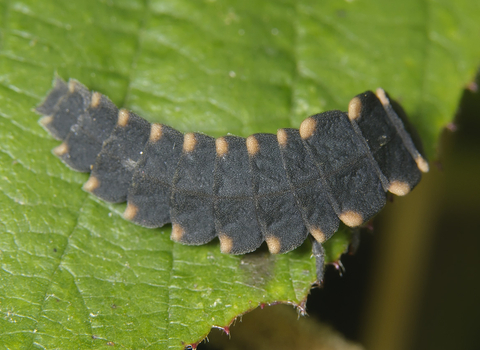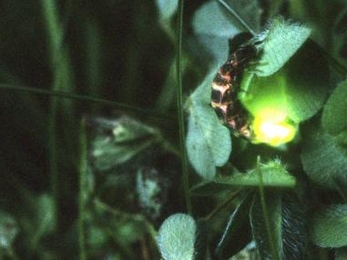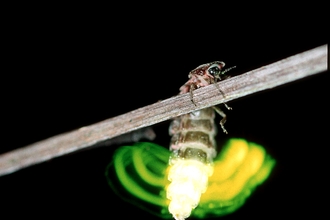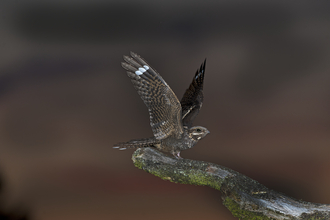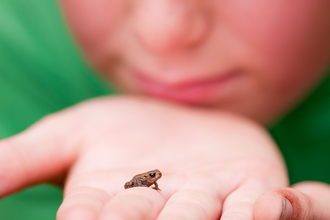Glow-worm
Not actually a worm at all, our glow-worm is a small beetle of meadows, grassland and hedgerows. Glow-worms live for up to three years as predatory larvae, living under rocks and hidden deep in grassy tussocks where they mainly feed on snails. Once they’ve matured, they emerge as adults who are active for just a few weeks during the summer. The adults don’t feed, but instead put all their energies into mating.
There’s nothing quite like the magic of spotting the ethereal green lamp of a glow-worm on a summer’s evening
Find glow-worms near you
Late June and early July is the best time to go on a glow-worm hunt. Find your nearest grassland nature reserve from the list below:
- Cambridgeshire, Cherry Hinton Chalk Pits
- Devon, Bystock Pools (During some summer nights the number of lights can approach 100 in the reserve’s grassland, a magical sight on a late evening walk.)
- Essex, Iron Latch - join a glow-worm walk in summer
- London, Frays Farm Meadows and Denham Lock Wood
- Suffolk, Blaxhall Common, Newbourne Springs
- Yorkshire, Townsclose Hills
What to look for
Choose a still, warm evening with a crescent moon (glow-worms are less likely to glow with a full moon). And try not to use a torch. Let your eyes adjust to the dark, and then you are more likely to pick out the faint green glow of the glow-worm. The flightless females are the ones who do most of the glowing, climbing up tall grass stalks, producing a greenish light to attract males (who look like typical beetles) as they fly along open areas in search of a mate. This bioluminescence is created through a chemical reaction in the beetle’s abdomen. It’s not only the female that glows: the larvae can glow as well, and even glow-worm eggs can emit light.
If you can't get to these places
Glow-worms are well distributed across much of England and Wales, although they are rare in Scotland. They are at their most numerous on calcareous grasslands where there are plenty of small snail species for them to feed on. So try visiting your local grassland nature reserve after dark, and see what you can find.
More wildlife experiences
From seeing colourful wildflowers to spotting magnificent birds of prey, we can help you get closer to wildlife across the UK.

